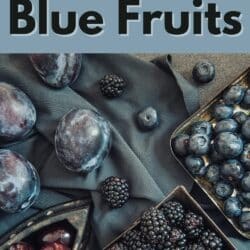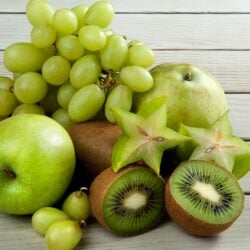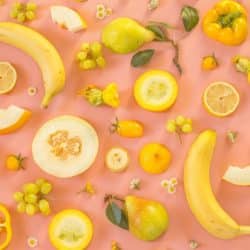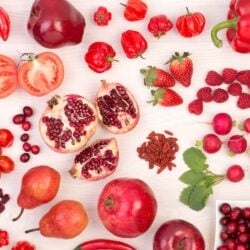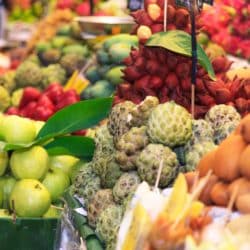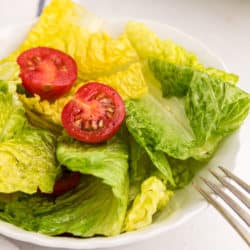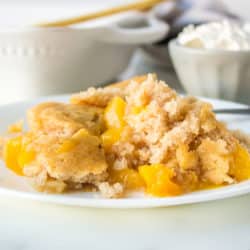27+ Blue Fruits List (Naturally Blue Foods)
Looking for a list of the best blue fruits? Here is the most comprehensive list on the web. Find all the most common blue-hued fresh fruits, plus many more you’ve probably never heard of!
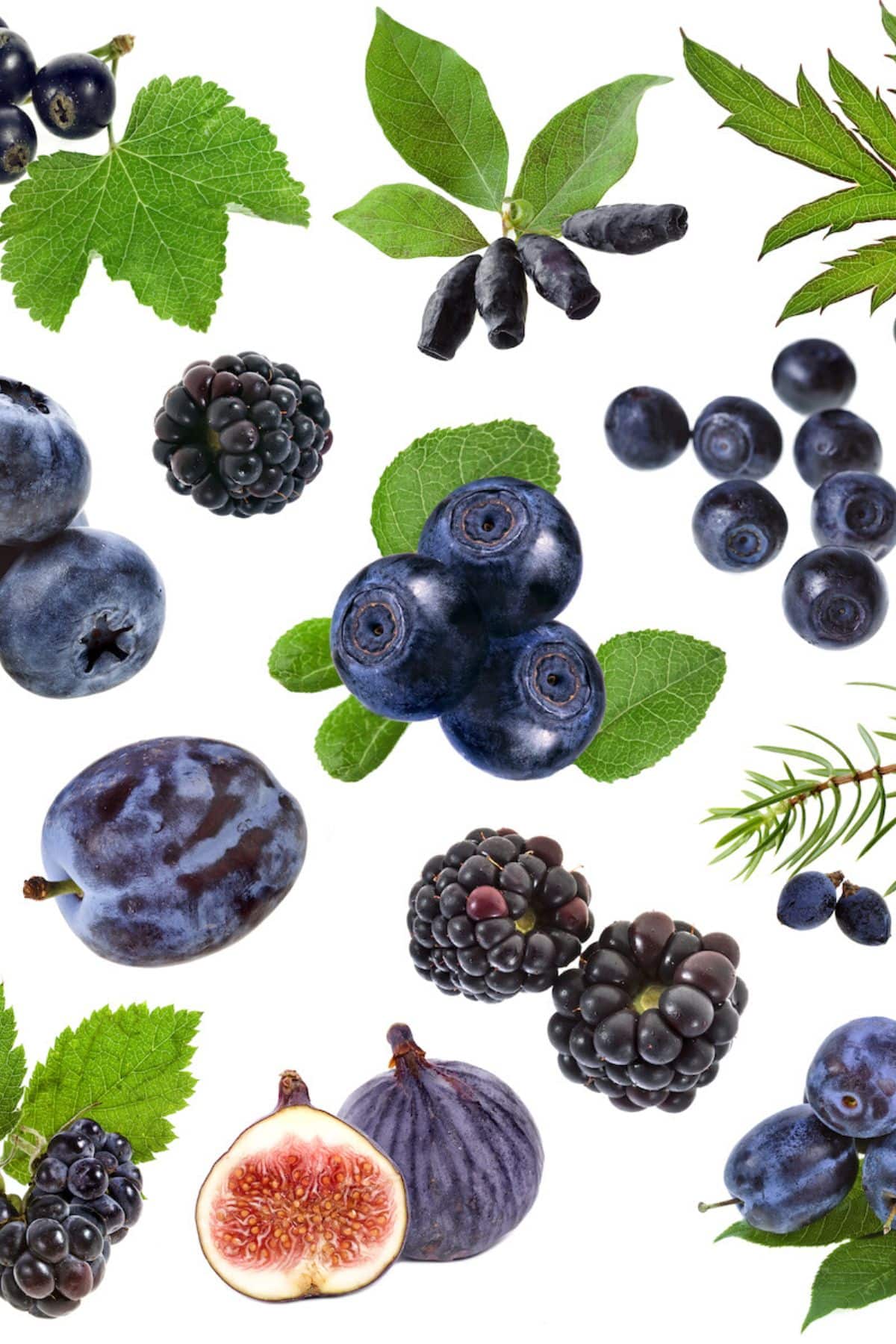
Best Blue Fruits
Whether you’re playing a trivia game, writing a research paper, or you just want more blue foods in your life, here is the most comprehensive list of the best blue fruits on the web!
I’ve also included information on what each fruit is and some of its distinguishing characteristics.
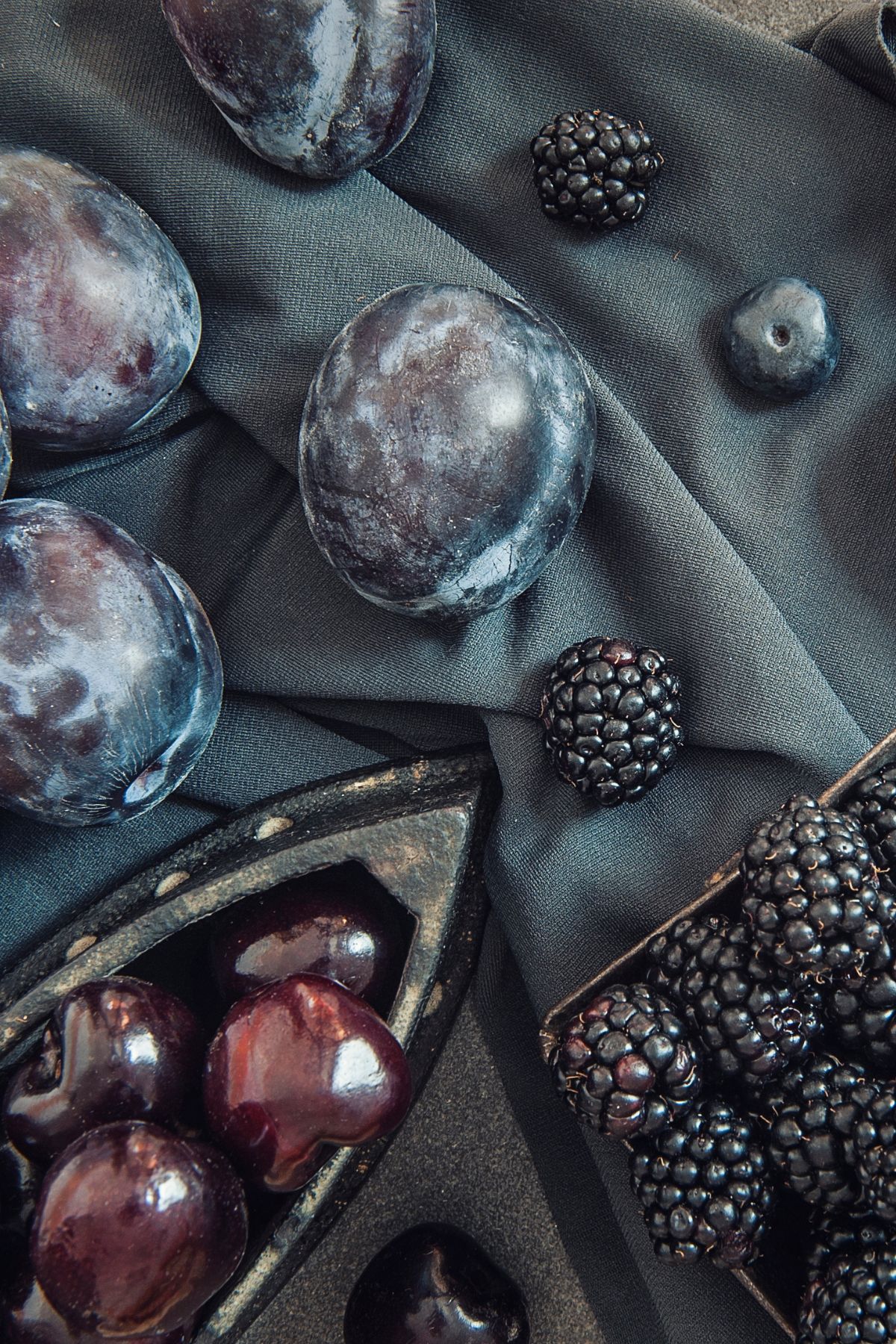
1. Bilberries
Bilberries are small, round fruits that grow in woods and on heaths.
They have dark blue skin and a sweet-tart flavor.
2. Blackberries
Blackberries are small, black-colored fruits that grow in the wild.
They have a sweet and tart flavor and are often used in pies and jams.
3. Black Currants
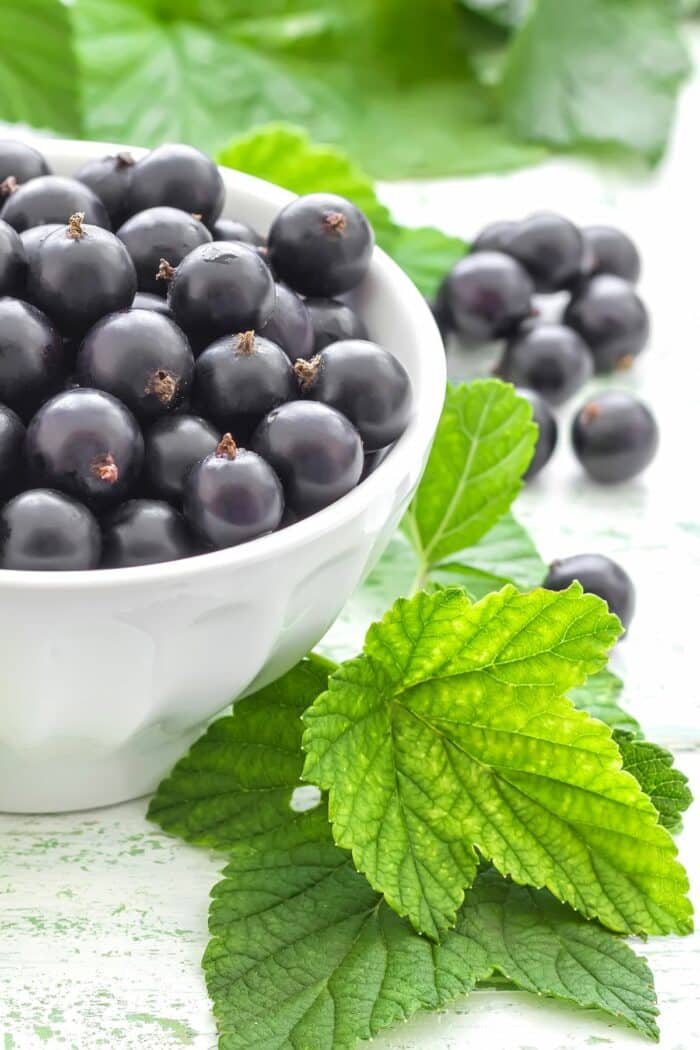
Black currants are small, dark berries that have a tart, tangy flavor.
They grow in cool climates and are often used in jams, jellies, and other preserves.
4. Blueberries
Blueberries are small, round berries that have soft blue skin and a juicy, sweet inside.
They grow on bushes in warm climates (around the world including the United States) and are a popular fruit to eat fresh or in pies and other desserts.
They are a blue-purple fruit that has health benefits including helping to fight heart disease and boost brain function and brain health. Blueberries also have antioxidant properties that help fight free radicals.
5. Blue Corn
Blue corn is a type of corn that has blue kernels and is used to make tortillas, chips, and other dishes. This gives the food a blue hue.
Blue corn grows in warm climates and has a sweet flavor. It is often used in Mexican and Southwestern dishes.
6. Blue Elderberries
Blue elderberries are small, dark blue berries that grow on bushes in cool climates. They have a tart, tangy flavor and are often used in pies and jams.
Elderberries also have great research on how they support the immune system with powerful antioxidants.
7. Blue Honeysuckle Fruits
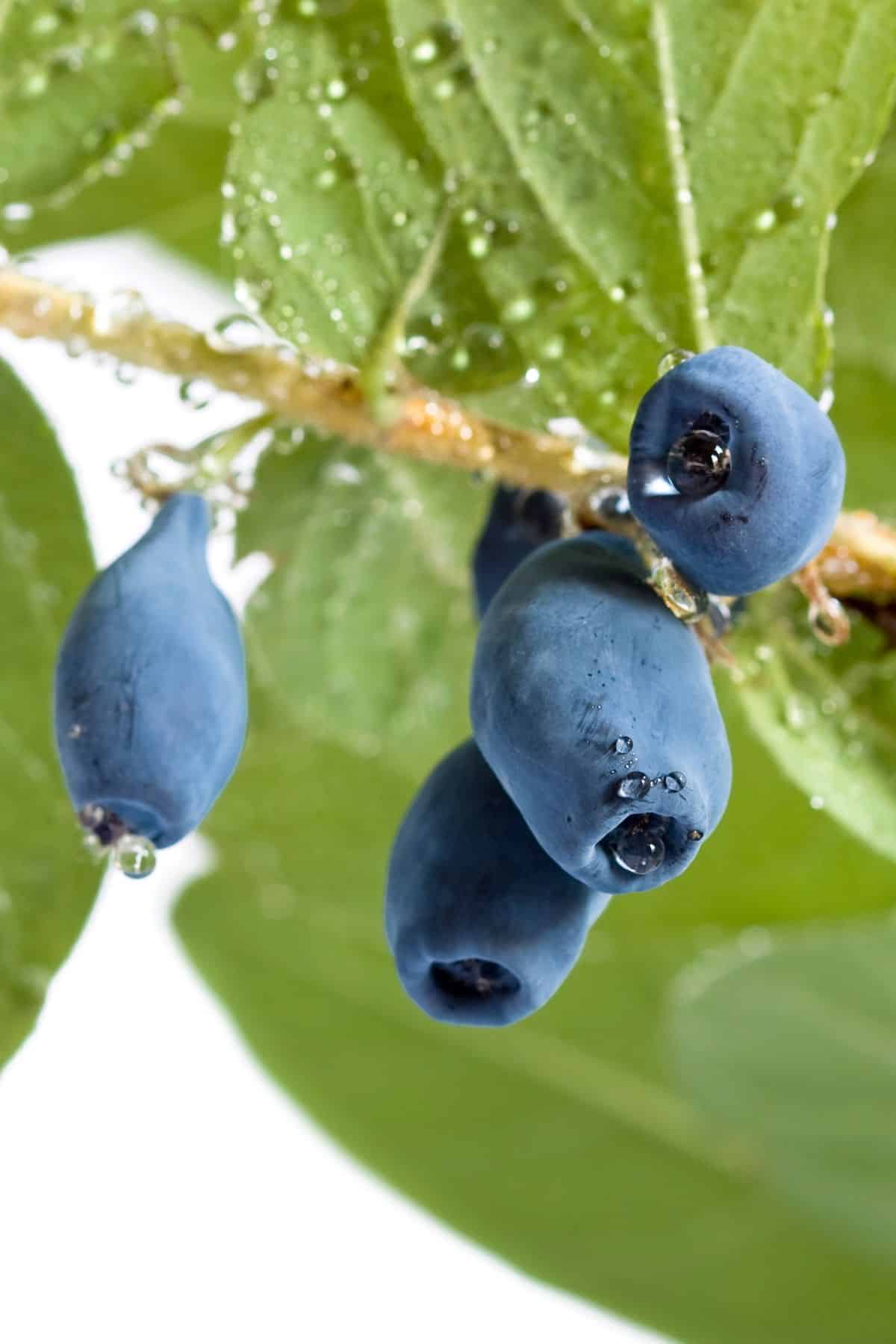
Blue honeysuckle fruits are small and delicate berries that grow on a vine. They have a sweet and slightly tart flavor, with a smooth, creamy texture.
The berries are blue in color, with a hint of purple, and are often used in desserts or eaten fresh as a snack.
8. Blue Jarrahdale Pumpkins
These large, blue-grey pumpkins have a smooth, deep ribbed exterior and sweet, deep orange flesh. They’re grown in eastern Australia and have a nutty, earthy flavor.
Jarrahdale pumpkins are perfect for baking, roasting, and making into soup.
9. Blue Marble Fruits
Blue Marble Fruits are a type of berry that grows in warm climates.
They have a blue exterior and a white interior, with a sweet and sour taste.
10. Blue Olives
These olives are small, blue-colored olives that grow on olive trees. They have a slightly sweet and salty taste and are often used as a garnish or appetizer. They have a green pulp underneath they blue skins.
Blue olives are typically grown in Mediterranean countries such as Italy, Greece, and Spain. Olives contain plant compounds that help with heart health.
11. Blue Sausage Fruits
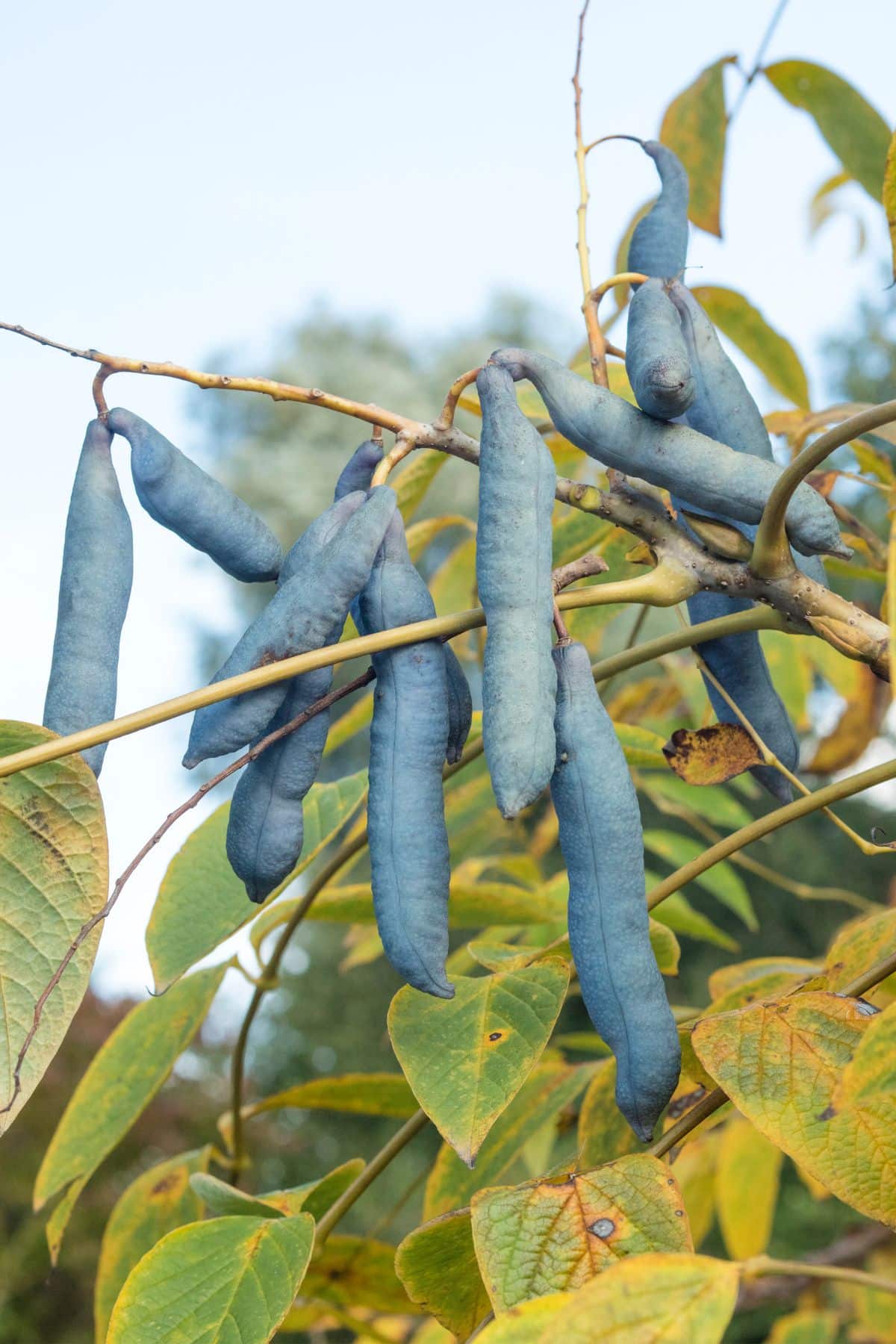
Blue sausage fruits are small, blue fruits that grow on trees in tropical climates.
They have a sweet, slightly sour taste and thin, edible skin.
12. Blue Tomatoes
Blue Tomatoes are a variety of tomato that is blue in color (also known as Fahrenheit Blues Tomatoes).
They are grown in various parts of the world and have a slightly sweet taste. They are usually small in size and have smooth skin.
Tomatoes have a decent amount of vitamin C and are also a great source of fiber. Most people consider tomatoes to be a vegetable, but they are technically a fruit.
13. Ceylon Blue Olives
Ceylon blue olives are small, blue-black fruits that grow on the mountainous slopes of Sri Lanka. They have a slightly bitter taste and a chewy texture.
The flesh of the fruit is often used in curries and other dishes.
14. Chokeberries
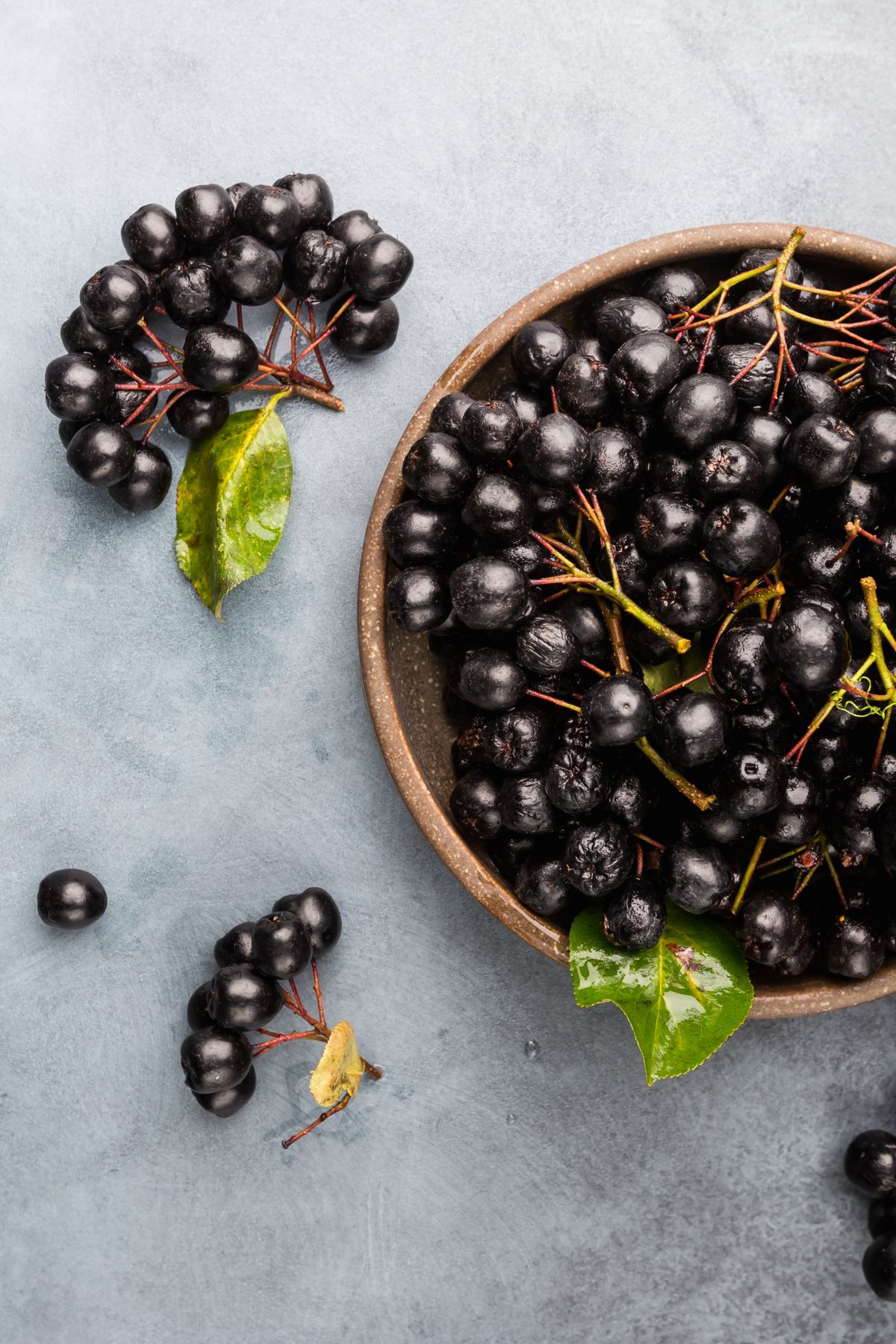
Chokeberries are small, tart berries that grow on shrubs in damp areas such as bogs and swamps.
They have a dark purple color and a sour, astringent taste.
15. Concord Grapes
Concord grapes are a type of grape that is native to North America.
They are small, dark blue in color, and have a sweet taste. Concord grapes grow in clusters on vines and are used to make jam, juice, and wine.
They are a popular blue fruit and are so flavorful!
16. Damson Plums
Elderberries are dark purple fruit that grows on elderberry bushes.
They have a tart, slightly sweet taste and can be used in pies, jams, and other desserts.
18. Indigo Rose Tomatoes
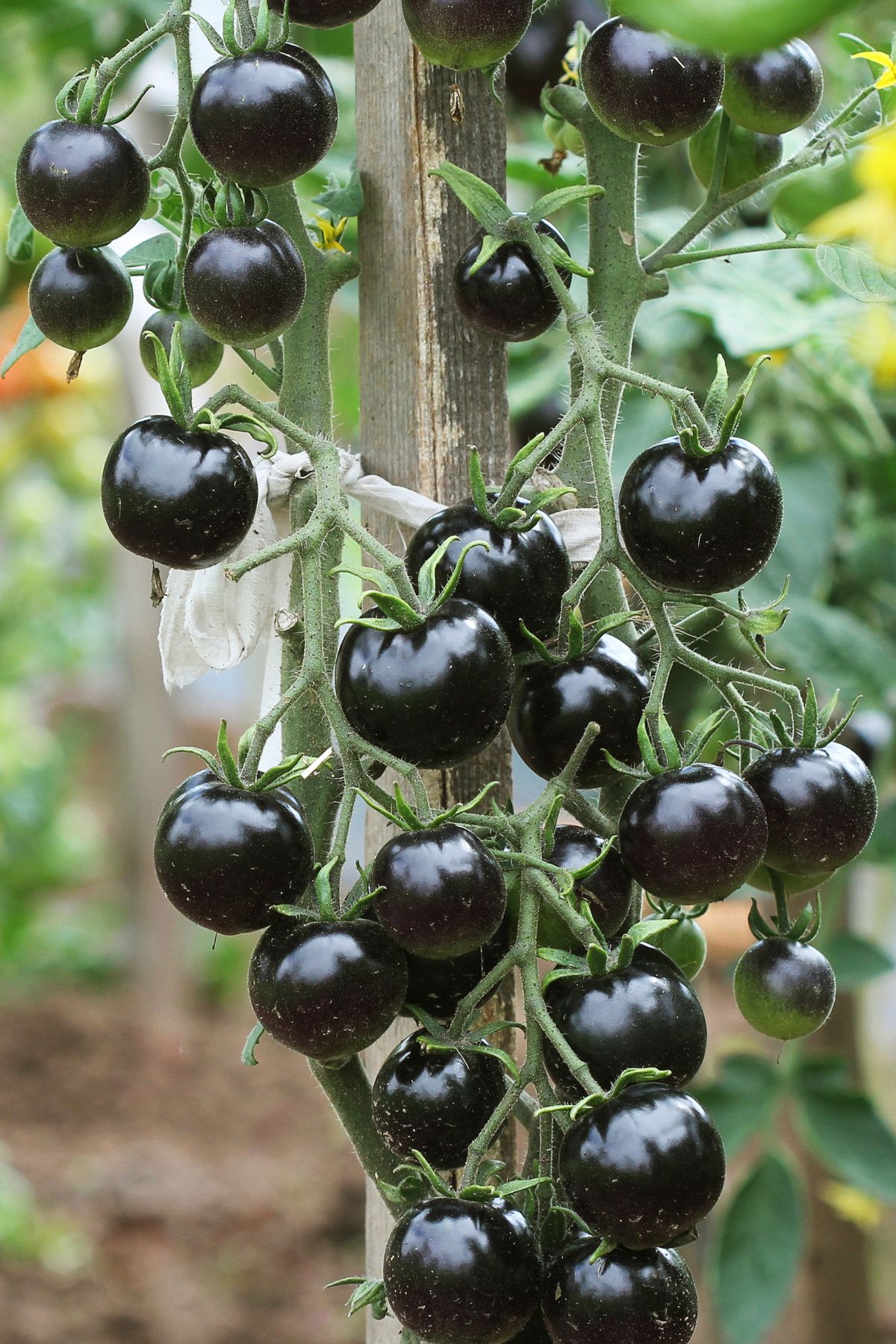
Indigo Rose Tomatoes are small, round tomatoes that have deep blue or purple skin.
They are sweet and juicy with a slightly tart flavor. Indigo Rose Tomatoes grow in warm climates and are often found in farmers’ markets.
19. Honeysuckles
Honeysuckles are a type of flowering plant that grows in many parts of the world.
The flowers are typically white or pink and have a sweet, honey-like smell. The fruits of some honeysuckle species are edible and have a sweet, tart flavor.
20. Huckleberries
Huckleberries have a tart and sweet taste and grow in the mountainous regions of North America.
They are small, round and dark blue in color with thick skin. Huckleberries are often used in pies, jams, and syrups.
21. Jostaberries
Jostaberries are a cross between black currants and gooseberries.
They are small, round and dark purple with a tart flavor. Jostaberries are grown in Europe, North America, and Asia.
22. Juniper Berries
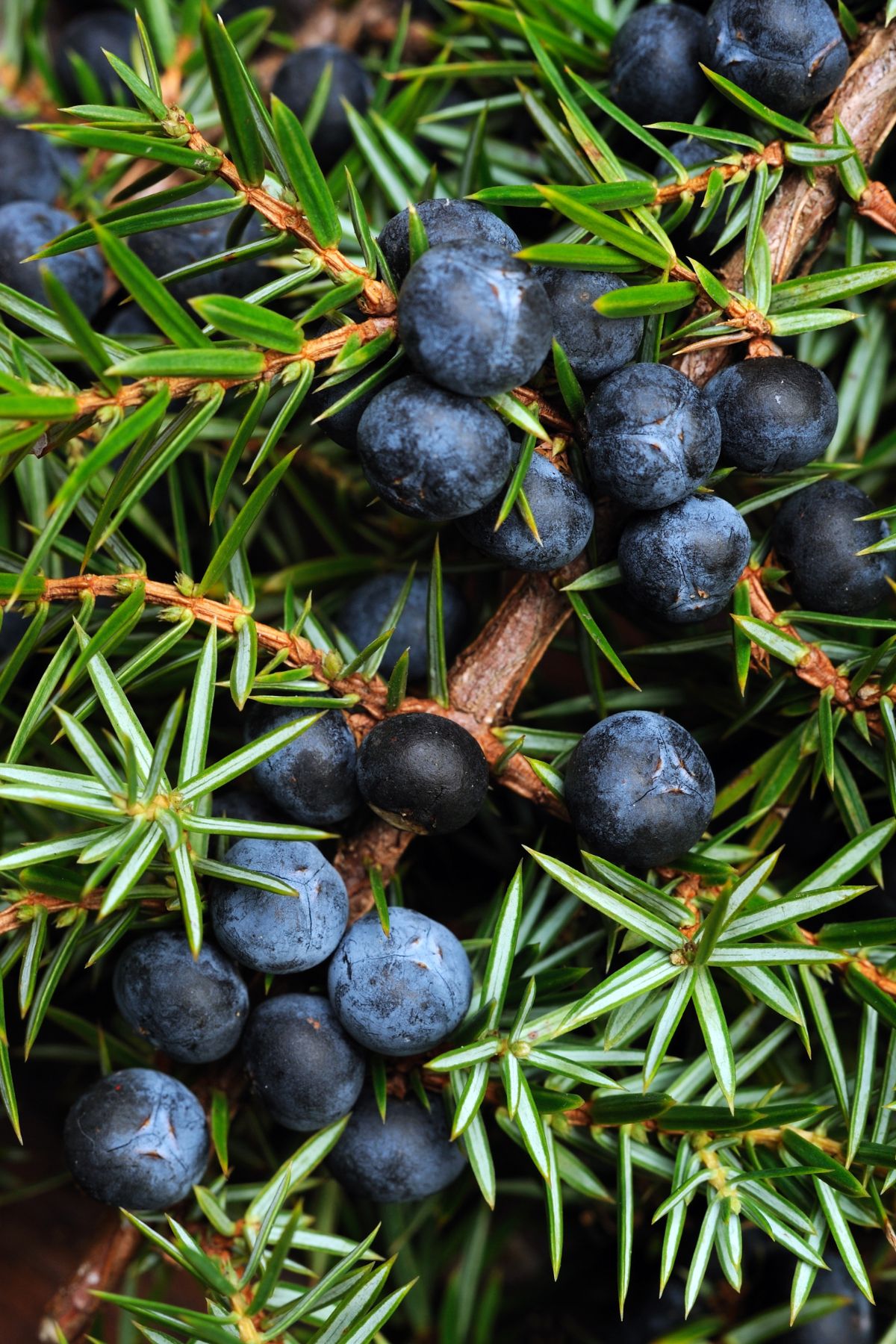
Juniper berries are small, blue-black fruits that grow on juniper trees. They have a tart, piney flavor and are used in many different dishes, including gin.
This is one of the more unique blue fruits that you may not have heard of.
23. Laurestines
Laurestines are tart and tangy, with a hint of sweetness. They grow on bushes in warm climates and are small and round with red or purple skin.
The latin name of this plant is viburnum tinus.
24. Prunus Spinosas
Prunus Spinosas are a type of cherry that is native to Europe.
They are small and have a sour taste. The tree grows to about 10 meters tall and the fruit is dark blue or purple.
25. Ribier Grapes
Ribier grapes are a type of black grape that is native to the Bordeaux region of France. They are larger in size than red grapes with thick skin and have a sweet, fruity flavor.
Ribier grapes are used to make both red and white wines.
26. Saskatoon Berries
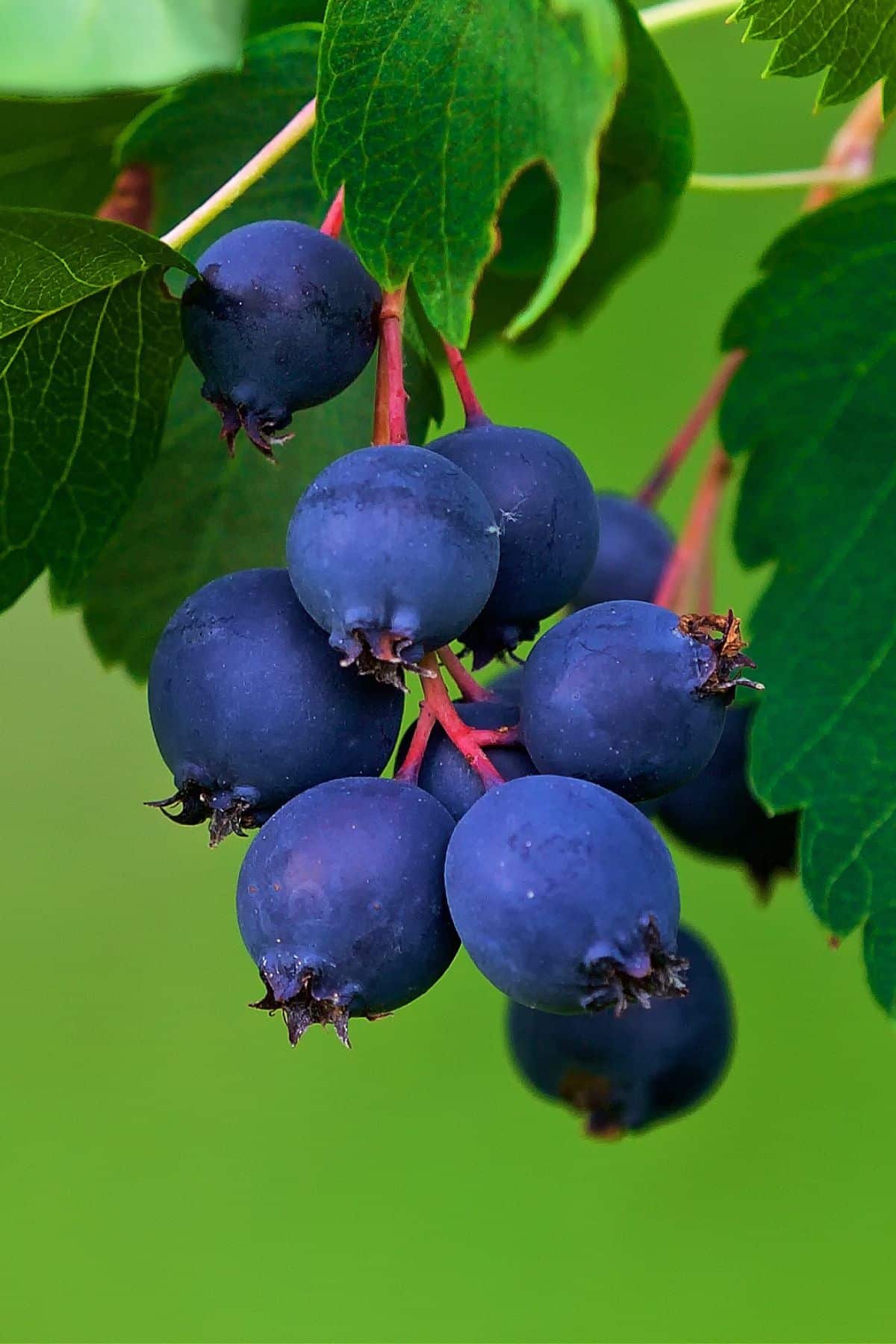
Saskatoon Berries are a type of fruit that grows in cold climates. They have blue or purple skin and are about the size of a blueberry.
Saskatoon Berries are sweet with a slight tartness to them and can be eaten fresh or made into pies or jams.
27. Texas Blue Giant Figs
Texas blue giant figs are large and blue-black in color with a sweet, rich flavor.
They grow in the hot, humid climate of Texas and are often used in recipes calling for dried figs.
More List of Fruits You Might Like
Summary
Each blue fruit has its own unique taste and texture, making them ideal for a variety of recipes. Whether you’re looking for a sweet treat or a tart addition to your dish, one of these blue fruits is sure to fit the bill.
Don’t forget to join my newsletter list to get exclusive clean eating recipes and tips. The newsletter is 100% free with no spam; unsubscribe anytime.
About the Author: Carrie Forrest has a master’s degree in public health with a specialty in nutrition and is a certified holistic nutritionist. She is a top wellness and food blogger with over 5 million annual visitors to her site. Carrie has an incredible story of recovery from chronic illness and is passionate about helping other women transform their health. Send her a message through her contact form.


